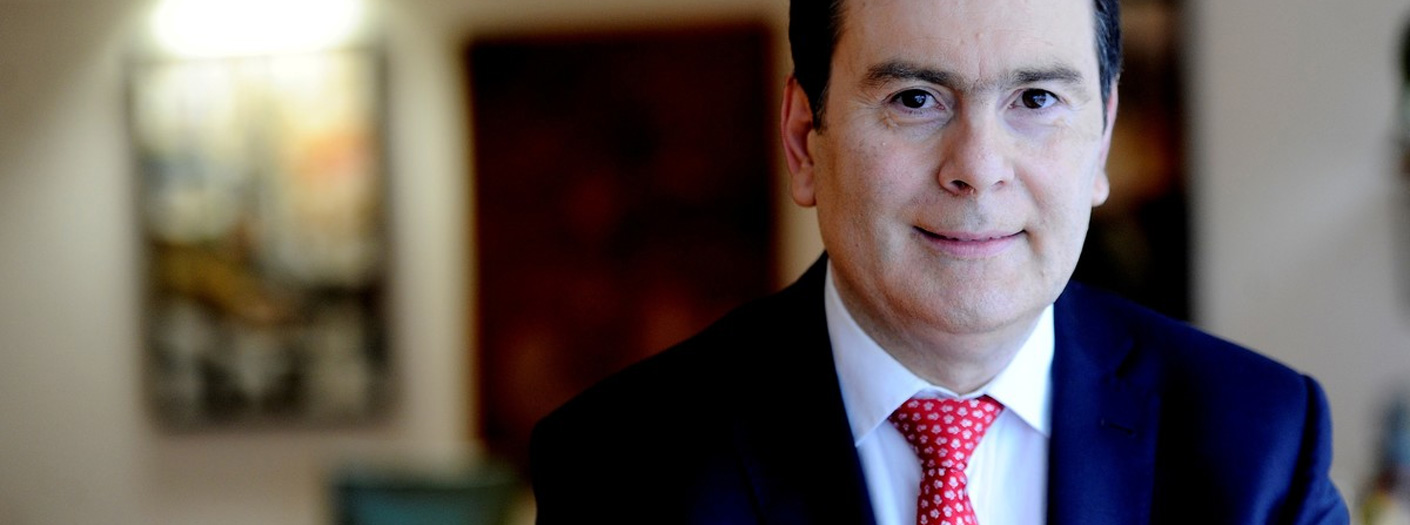Gerardo Zamora

Gerardo Zamora was born in 1964. When he was 4 years old, his family settled in Beltrán, a city forty kilometers from the capital of Santiago del Estero.
After studying Law at the Catholic University of Santiago del Estero, he graduated as a lawyer. He is married to the current senator and former governor Claudia Ledesma Abdala, with whom he has three children: Valentino, Nazareno, and Amparo. Francisco, the eldest of his children from his first marriage, has made him a grandfather of two.
His interest in politics began in the eighties, during the return to democracy after the dark years of the last military dictatorship. Inspired by the leadership of the elected president, Raúl Alfonsín, he began to get involved in the university group Franja Morada and quickly moved from student leader to president of the group. In 1987, he became president of the student center of the Faculty of Law and in the early nineties led the Radical Youth. In 1991, at just 27 years old, he assumed his first public office after being elected provincial deputy, a position he renewed in 1997, leading him to preside over the radical bloc in the Santiago del Estero Legislature.
Convinced that life and party debate are fundamental to the democratic dynamic, he progressively and gradually assumed positions within radicalism. At 33, he first became President of the Capital Committee of the Unión Cívica Radical and, a few years later, of the Provincial Committee. At the end of the nineties, he obtained his first executive position as deputy mayor of the City of Santiago del Estero in a ticket with José Luis Zavalia. In the context of the economic and institutional crisis that erupted in Argentina at the end of 2001, Zavalia resigned, and Zamora took over the mayoralty with a very complex scenario: a virtual economic-financial collapse of the municipality and repeated strikes by municipal employees. After taking charge of the management and stabilizing the municipal economy, in 2003 he received recognition from the people of Santiago: he was reelected as mayor with 64% of the votes.
The profound party crisis in which radicalism fell after the collapse of the Alliance, an electoral front of which radicalism was a part, had its local chapter. In 2004, Zamora founded the Frente Cívico por Santiago, a space that called together sectors of radicalism and provincial Peronism. From this heterogeneous front, he built his political career and broke the hegemony that Peronism had exercised for forty years in the province. In 2005, he was elected governor for the first time. In 2008, he was reelected by the people of Santiago with 85.05% of the votes.
A lawyer by profession and committed to social work in the province, Claudia Ledesma Abdala, his wife, won the elections in 2013 and became governor. That same year, Zamora was elected senator and held the provisional presidency of the Senate during the presidency of Cristina Fernández de Kirchner. After his time in the Upper House, he returned to the province and was elected governor in 2017, reelected in 2021 with a mandate until December 2025. For her part, Claudia Ledesma Abdala has legislative and political experience, having been elected deputy in 2017 and having served as provisional president of the Senate from 2019 to 2023. She is currently a senator for Santiago del Estero.
At 60 years old, Zamora understands that integration and federal development in Argentina are two significant challenges. Therefore, he holds the pro tempore presidency of the Northern Argentine Region, a block made up of ten Argentine provinces – Catamarca, Chaco, Corrientes, Formosa, Jujuy, Misiones, Salta, La Rioja, Santiago del Estero, and Tucumán – aimed at promoting economic and social development in the region through production, employment, and exports to correct the asymmetries with other areas of Argentina.